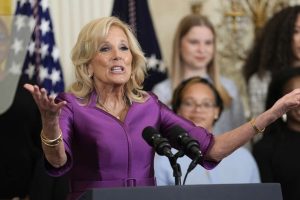On September 15, 2021, Illinois Governor JB Pritzker signed the comprehensive Climate and Equitable Jobs Act (SB2408), setting out the next steps for Illinois’ energy policy after years of negotiation. This legislation builds on the comprehensive Energy Jobs of the Future Act of 2016, which expanded programs for energy efficiency, customer education and infrastructure, and access to renewable energy. In a statement, Governor Pritzker announced this legislation as “the most significant step Illinois has taken in a generation toward a future of clean, affordable and reliable energy.”
In particular, this legislation sets a statewide 100% clean energy target by 2050, with “clean energy” defined as “energy generation 90% or more free from carbon dioxide emissions”. This target is accompanied by an intermediate target of 50% renewable energy by 2040, based on a narrower definition that includes “energy and its associated renewable energy credit or renewable energy credits from wind energy, solar thermal energy, geothermal energy , photovoltaic cells and panels, biodiesel, anaerobic digestion, and hydroelectric power that does not involve new construction or significant expansion of hydroelectric dams. ”
This legislation includes an associated phase-out of coal-fired power plants and natural gas plants through 2045, subject to adjustments by the Illinois Commerce Commission, Illinois Power Agency and Illinois Environmental Protection Agency to ensure the reliability of the power grid. Grants to convert coal-fired power plants to solar energy storage facilities or are available from 2024. An annual investment of $180 million in clean energy workforce diversification and training to provide transition opportunities for the force of fossil fuels. An Energy Workforce Transition Commission will be created, which will be responsible for planning any shutdown dates for all fossil fuel plants.
To help achieve its clean energy goals, this legislation requires the Illinois Power Agency to spend approximately $580 million annually on renewable energy credits (RECs) for new solar and wind projects, with an emphasis on RECs for distributed solar projects. and community. This legislation also indicates that nuclear power is expected to contribute to Illinois’ clean energy goals, recognizing that “nuclear power generation is necessary for the state’s transition to 100% clean power and ensuring the continued operation of nuclear plants advances environmental and public health interests”. Supporting the continued operation of nuclear power plants includes the opportunity for nuclear power plants to earn carbon mitigation credits for their power generation.
In addition to developing electric vehicle rules and program administration requirements, a new Governor-appointed Electric Vehicle Coordinator will also act as the policy officer related to the charging of electric vehicles and electric vehicles. The electric vehicle component of the legislation aims to put 1 million electric vehicles on Illinois’ roads by 2030.
If you have any questions about these developments, please contact John Dunlap, Nick Johnson, Rikaela Greane or the Foley attorney you normally consult.









Add Comment